Found in nearly 20% of U.S. households, hummus is fast becoming as popular as peanut butter. Hummus comes in many varieties, such as lemon, roasted garlic, roasted pepper, and more. Plus, it has multi-purpose use. It can be used in sandwiches, as a topping for chicken or fish, and is excellent with a baked potato. And it is healthy as well!
Hummus Nutrition Facts
Hummus is nutritious and may help you feel better after eating it. It’s also a good source of vitamins and minerals, so you can feel good about eating it. A 100-gram (3.5-ounce) serving of hummus has the following nutrition facts:
- Calories: 166
- Fat: 9.6 grams
- Protein: 7.9 grams
- Carbs: 14.3 grams
- Fiber: 6.0 grams
- Manganese: 39% of the RDI
- Copper: 26% of the RDI
- Folate: 21% of the RDI
- Magnesium: 18% of the RDI
- Phosphorus: 18% of the RDI
- Iron: 14% of the RDI
- Zinc: 12% of the RDI
- Thiamin: 12% of the RDI
- Vitamin B6: 10% of the RDI
- Potassium: 7% of the RDI
Health Benefits of Hummus
Hummus is a delicious, healthy dip that is becoming more and more popular. It comes in many flavors and can be used in many different ways. Here are some of the health benefits of hummus.
Hummus Is a Good Source of Energy
Hummus is a complex carbohydrate made of garbanzo beans (chickpeas) that delivers time-released energy without causing blood sugar levels to surge. It is high in protein, which helps to keep you full. Beans and starches require a long time to digest and use the glucose they contain. It appears to stabilize blood sugar levels before the inevitable decline. According to a new study, people with diabetes who ate at least a cup of beans for three months increased their glucose tolerance. A decreased risk of coronary heart disease was associated with this lowering.
Hummus Helps Prevent Blood Clots
According to research, hummus consumption has been found to help reduce the risk of blood clots. Garbanzo beans are high in vitamins E and K, which have been shown to have blood-thinning qualities, naturally lowering the risk of blood clots. Vitamin K has been discovered to aid in preventing a variety of bleeding and blood clotting issues. Two types of chickpeas successfully reduced inflammation indicators in a recent study.

Hummus Lowers Cholesterol
Researchers are studying the link between the daily consumption of hummus and the lowering of bad cholesterol. Chickpeas contain isoflavones, which are well-known cholesterol-lowering antioxidants. A study found that people who may not have been the most healthy participants benefited from eating chickpeas every day. The study group ate less fat and had a slight reduction in cholesterol. Researchers believe that hummus has an excellent protein-to-carbohydrate ratio that would help stabilize insulin levels.
Hummus Has Anti-Cancer Properties
Hummus contains 36% of the daily required folate consumption. Research shows that getting enough folate may reduce your chances of getting cancer. People who consume hummus are less likely to get colorectal cancer and heart disease. A recent study showed that folate might play a dual role in cancer development. Folate may provide protection early in carcinogenesis and individuals with a low folate total. Folate may be beneficial at moderate levels.
Hummus May Reduce Heart Disease Risk
Hummus includes numerous components that may help reduce heart disease risk. After eating a diet with added chickpeas or wheat for five weeks, 47 healthy people were evaluated. People who ate extra chickpeas had 4.6% lower “bad” LDL cholesterol levels than those who consumed more wheat.
A study of ten research with over 268 participants found that consuming legume-rich diets like chickpeas reduced “bad” LDL cholesterol by an average of 5%. Aside from chickpeas, hummus is also high in heart-healthy monounsaturated fats.

Hummus Is a Good Source of Fiber
Researchers and nutritionists have called hummus a “superfood” for those trying to lose weight. Hummus is an excellent source of fiber that helps with digestion and helps one feel full and satisfied. A very recent study showed people who used hummus as a snack had a 55% less chance of becoming obese and are more than 50% less likely to have high blood sugar than those who never eat hummus. Hummus contains 4 grams of protein per 100 grams which will help suppress appetite and help with weight loss.
Easy to Add to Your Diet
Hummus is not only nutritious and delectable, but it’s also simple to include in your diet — there are several ways to consume hummus. Replace high-calorie spreads like mayonnaise or creamy dressings with hummus instead of other high-fat condiments.
Hummus is a famous dip that tastes wonderful with crisp veggies like celery, carrots, cucumbers, and sweet peppers. Hummus is frequently found in supermarkets, but it’s straightforward to make at home.
Easy Homemade Hummus
Traditionally prepared hummus is a bit time-consuming. This easy homemade hummus recipe is perfect for busy weeknights or anytime you want a delicious, healthy snack.
Ingredients:
- 1 can (15 oz) chickpeas, drained and rinsed
- 2 tablespoons tahini
- 2 tablespoons olive oil
- 1/2 lemon, juiced
- 1 garlic clove, minced
- 1/2 teaspoon ground cumin
- 1/4 teaspoon salt
- 1/4 teaspoon black pepper
Instructions:
- Add all ingredients to a food processor or blender and blend until smooth.
- Serve with pita bread, crackers, or vegetables.
Try These Delicious and Healthy Hummus Recipes
References:
- Heart Disease Facts | cdc.gov
- Dietary supplementation with chickpeas for at least 5 weeks results in small but significant reductions in serum total and low-density lipoprotein cholesterols in adult women and men – PubMed (nih.gov)
- Non-soy legume consumption lowers cholesterol levels: a meta-analysis of randomized controlled trials – PubMed (nih.gov)
- Dietary Guidelines for Americans – PubMed (nih.gov)
- Health benefits of dietary fiber – PubMed (nih.gov)
- Diets supplemented with chickpea or its main oligosaccharide component raffinose modify faecal microbial composition in healthy adults – PubMed (nih.gov)
- Butyrate and colorectal cancer: the role of butyrate transport – PubMed (nih.gov)
- Does butyrate protect from colorectal cancer? – PubMed (nih.gov)
- Glycemic Response to Black Beans and Chickpeas as Part of a Rice Meal: A Randomized Cross-Over Trial – PubMed (nih.gov)
- Post-prandial glucose and insulin responses of hummus alone or combined with a carbohydrate food: a dose-response study – PubMed (nih.gov)




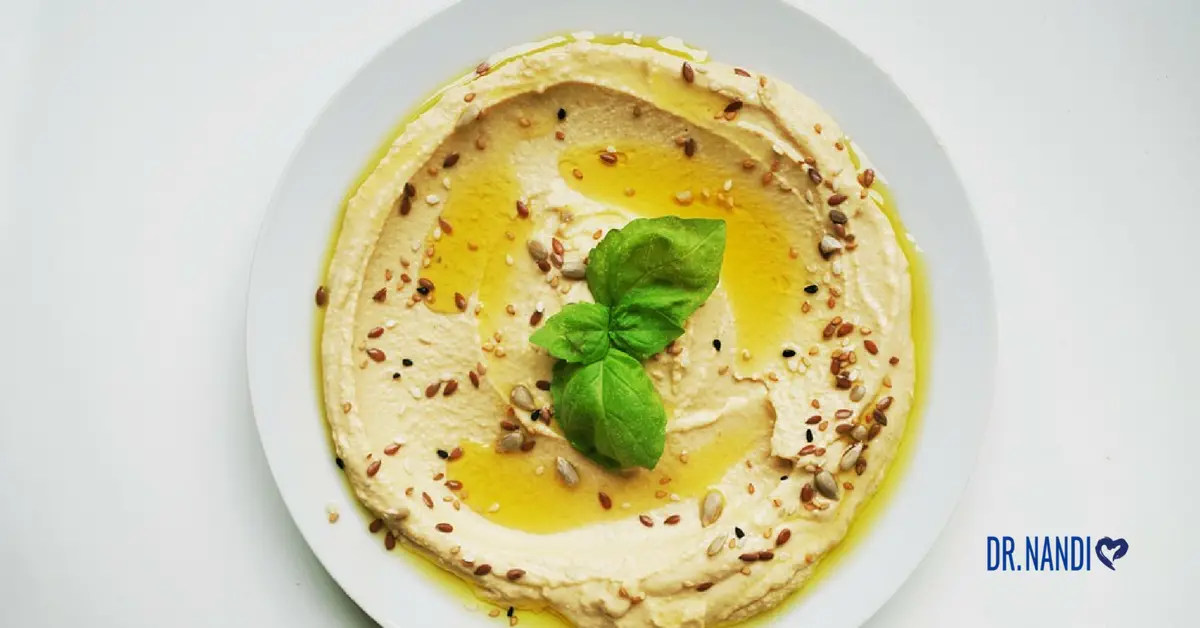
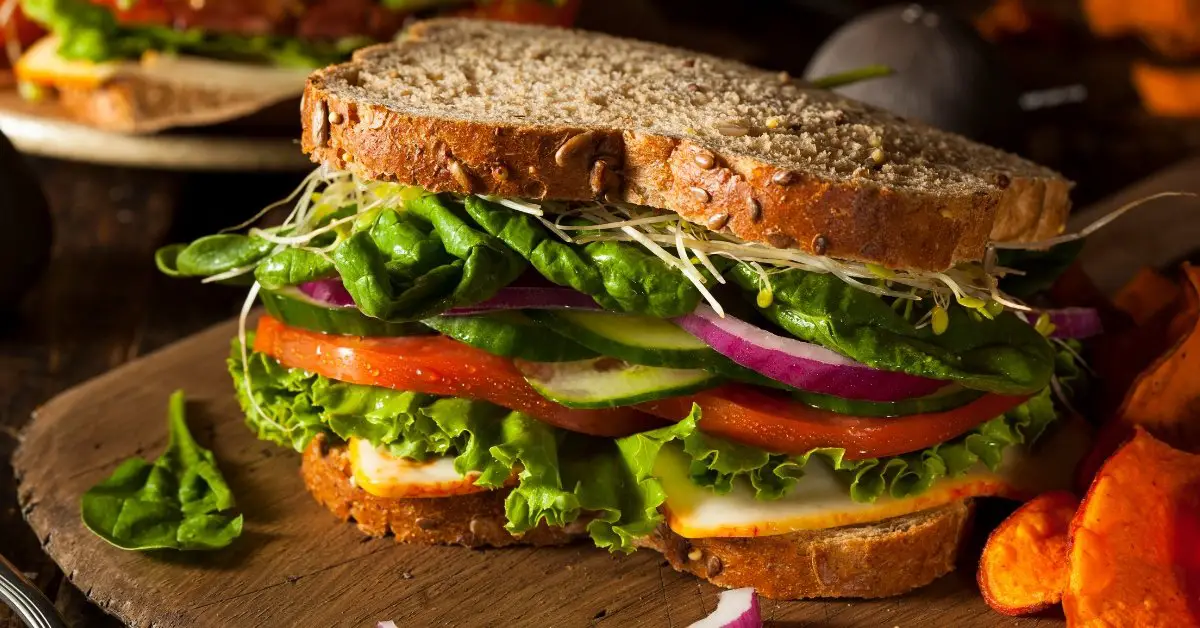
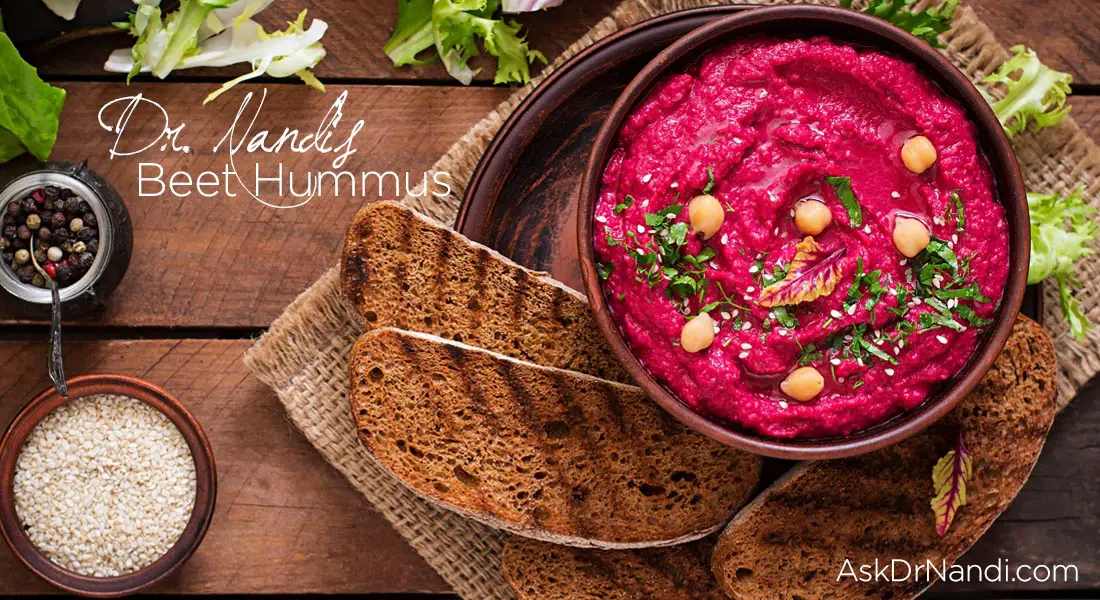
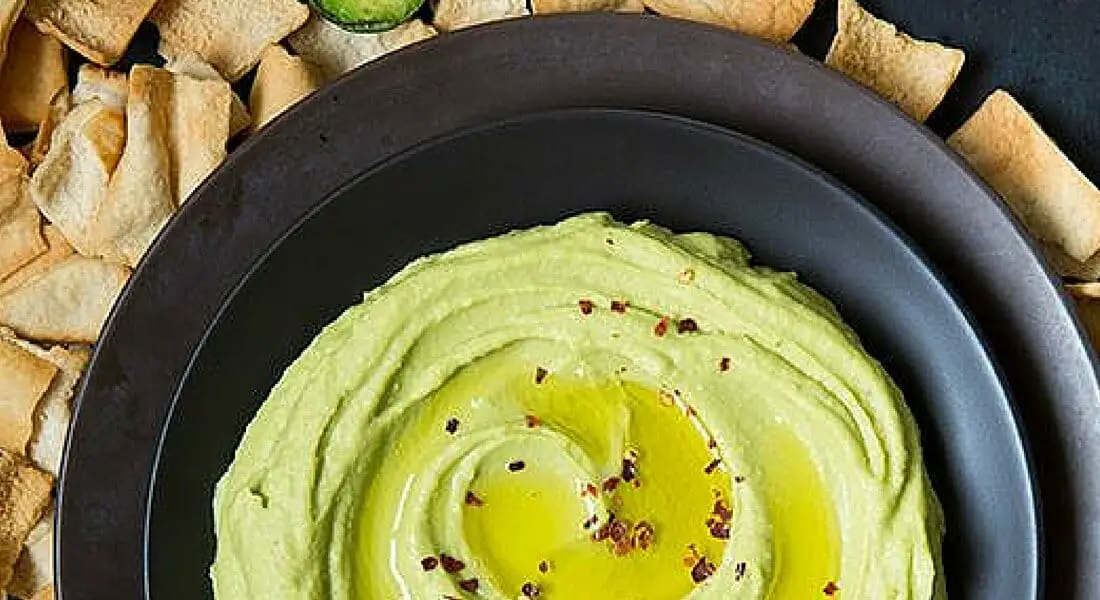




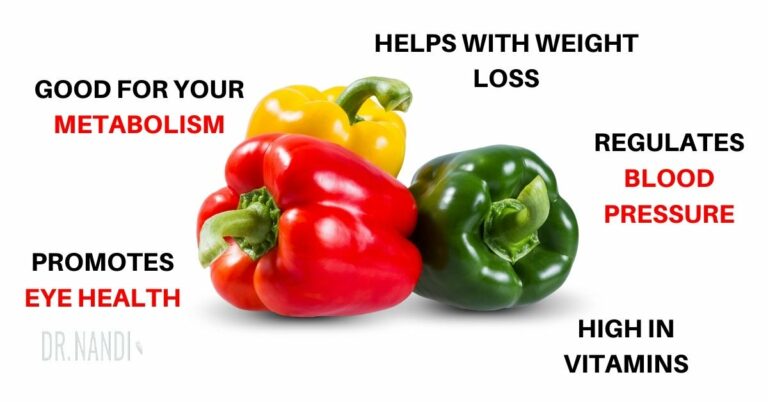


 Subscribe to Ask Dr. Nandi YouTube Channel
Subscribe to Ask Dr. Nandi YouTube Channel









